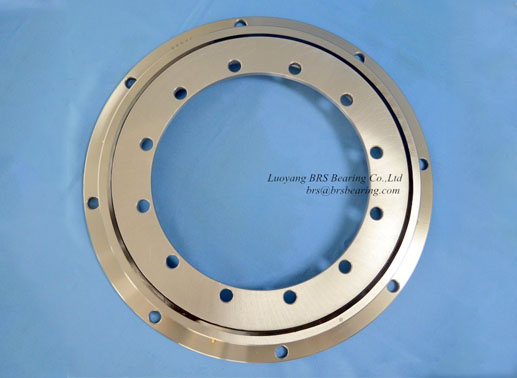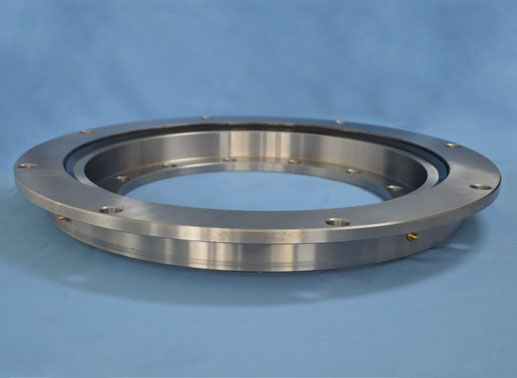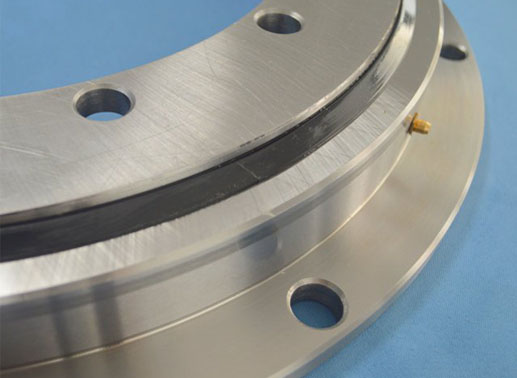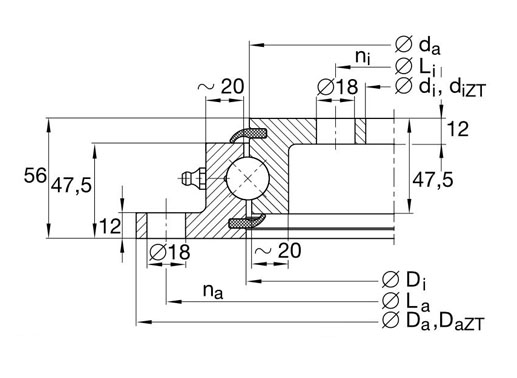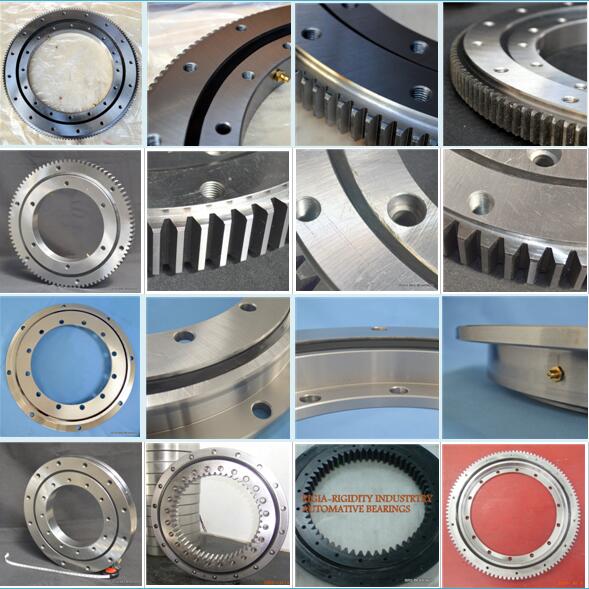-
Part NO.
Open type:VLU200414
-
Dimension
di:304mm
Da:518mm
H:56mm
-
Mounting
Li:332mm
La:490mm
-
Basic Load Ratings
Cr:111kN
Cor:110kN
Ca:169kN
Coa:295kN
-
Equivalent Model
- Features
- Mounting
VLU200414 light series slewing bearings specifications:
Rolling elements Ball Space retainer Yes Material 50Mn/42CrMo/Stainless steel Radial clearance 0~0.5 for standard type Standard lubrication method Grease lubrication Lubrication hole Yes Sealing NBR sealing at both sides Raceway hardness HRC 55 ~ 60 Working temperature -25℃ ~ 80℃ Equivalent models:
RKS.23 0411, 230.20.0400.013 Typ 21/520.0, 23-0411-01, 90-20 0413/0-37012, L6-16P9Z, SD.505.20.00.C
VLU200414 light series four-point contact ball bearing features:
1. Support axial, radial, and tilting moment loads.
2. Normal clearance, suitable for light to medium-duty arrangements which require lower accuracy.
3. Easy installation, with mounting holes on both inner and outer rings.
4. Lightweight and thin section.
FAQ
1. What’s the service life of this slewing bearing?
Regarding bearings service life, the theoretical value and actual value are often different. Need to be calculated based on detailed working conditions, material, processing techniques, and maintenance will also affect the slewing bearings service life. BRS provides one year’s warranty for bearings under common working conditions, if your application environment is complex please contact us for suggestions.2. I’m designing a prototype, can you produce according to my design?
Yes, BRS can produce a custom design based on users’ requirements, but there will be a MOQ.3. What is the MOQ for this model?
There is no MOQ for bearing models in stock, and low MOQ for a custom design. Please contact us for details.VLU200414 light series slewing bearings installation instructions

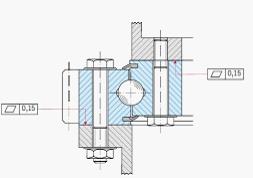
1. Make sure the mounting surface is flat and clean, and free from burrs or
rough edge.
2. The unhardened zone is marked with an “S” on the slewing ring, it must be positioned outside the main load-carrying areas.
3. Commissioning of the slewing ring under sufficient load.

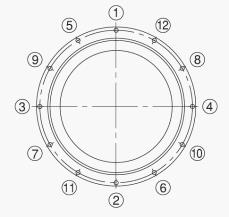
4. Adjust the backlash of gear and recheck it after the final tightening of the bearing.
5. Fastening bolts. Place the bearing onto the connecting structure and align the screw holes. Screw all the bolts in the holes first and follow the order as shown in the diagram when tightening bolts in the diagonally opposite sequence. Do not tighten bolts randomly.
6. Check the installation by rotating the assembled bearing arrangement. The torque should not show any excessive variation or “tight spots” during rotation.

